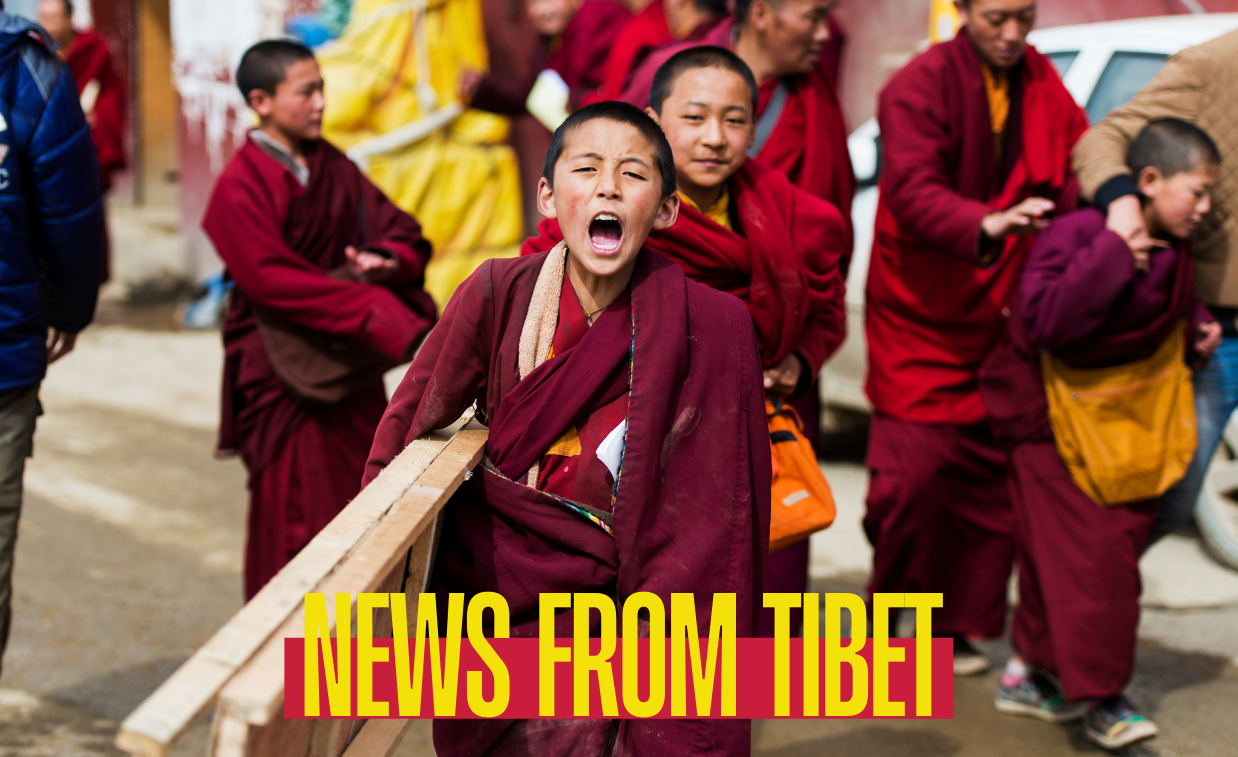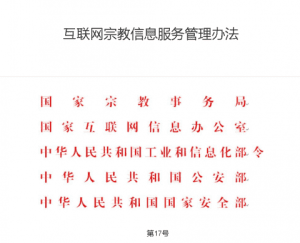
China announces further restrictions on Buddhism on the internet
In further restrictions to the already shrinking space for religious communities in China and Tibet to freely practice their religion, the Chinese state announced a new regulation

Measures on the Administration of Internet Religious Information Services
Online WeChat groups promoting Tibetan Buddhist culture ordered shutdown after new regulation is adopted
In further restrictions to the already shrinking space for religious communities in China and Tibet to freely practice their religion, the Chinese state on 20 December 2021 announced a new regulation: Measures on the Administration of Internet Religious Information Services.
These measures give more power to the authorities to clamp down on the spread of online religious content that the party deems “damaging”. The new regulation was jointly formulated by five departments: the State Bureau of Religious Affairs, the State Internet Information Office, the Ministry of Industry and Information, the Ministry of Public Security, and the Ministry of State Security.
The Chinese Communist Party held the National Conference on Work Related to Religious Affairs in Beijing last December where China’s President Xi Jinping called for punishing believers using social networks for religious proselytisation or criticism of the government’s religious policy. He also reiterated that “sinicisation” of religion means that all religious communities should be led by the Party, controlled by the Party, and support the Party.
The new regulation, which comes into effect from 1 March 2022, totally bans all foreign organisations and individuals from spreading religious content online in China and Tibet and requires religious organisations and individuals to obtain an authorised government licence to do so.
For those without a licence, Article 17 stipulates that they are “not allowed to organise and carry out religious activities on the Internet”, and further “not allowed to broadcast or record religious ceremonies such as worshipping Buddha, burning incense, ordaining, chanting, worshipping, mass, and baptism in the form of words, pictures, audio and video.” Those flouting the rules face severe punishment.
CLOSURE OF WECHAT GROUPS
Tibet Watch confirms through a source that the authorities in China’s north-west Qinghai Province (the traditional Amdo region of Tibet having been incorporated into this province) have already imposed a ban on sharing of religious content and information on social media such as WeChat, with the Public Security Bureau secretly investigating online religious groups and their activities.
We have learned that a Qinghai provincial official through a notification issued on 20 January 2022 called for immediate closure of WeChat groups including the Good Conduct Group (བཟང་སྤྱོད་ཚོགས་པ), Guru Sidhi Group (གུ་རུ་སིདྡྷི་ཚོགས་པ) and Mani Group (མ་ཎི་ཚོགས་པ). These groups, contrary to posing any serious threat to the authorities, mainly promote and share information about virtuous acts such as pilgrimages, religious observance such as the liberation of animal lives on holy days to accumulate merit.
With the inevitable closure of these WeChat groups, dispensing practical apolitical information, the hundreds and thousands of Tibetan group members will now have to depend on atheist Chinese government sources for religious discourses and content, effectively imposing further restrictions on the practice of Tibetan Buddhism.
The main body responsible for oversight of religious organisations is the State Administration for Religious Affairs (SARA). Buddhist organisations and adherents are under the control of the Chinese Buddhist Association, which was established in 1953. In China, the law has been crafted to protect the state from interference from religions in both civil and government affairs.
The right to freedom of religious belief is enshrined in the Chinese constitution but this right is not absolute: only organisations that submit to party control are covered by this edict, and the Chinese Communist Party changes its policies any time at its will.
Information supplied by Tibet Watch

